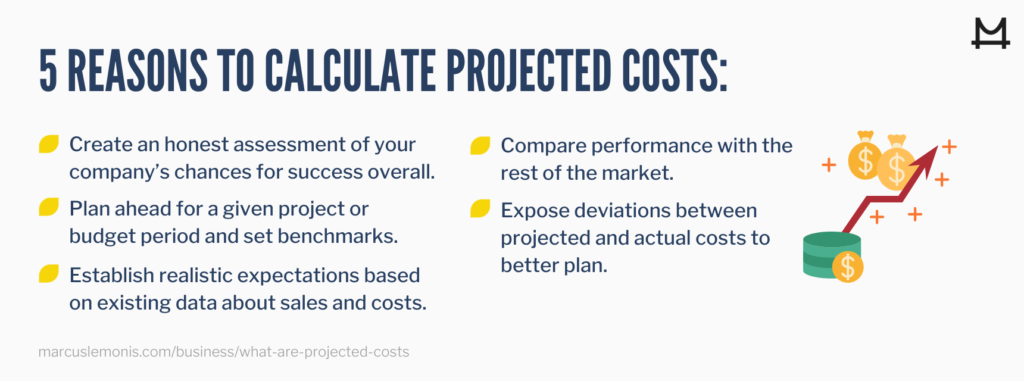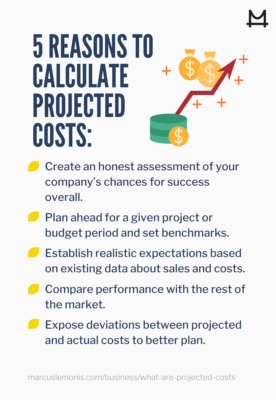How Projected Costs Factor into Your Business’s Chance for Success
Projected costs are an important part of the budgeting process. Marcus always says that as a business owner you need to “Know your numbers.” A strong grasp on annual sales revenue, expenses, and gross profit margin allows a business owner to plan for the year ahead or to budget for a particular project.

The projected costs derive from the previous budget period’s sales and expenses. Projections should include anticipated increases in expenses and consideration of recent sales.
Projected costs are also important when starting a business. To determine projected costs for a new business, set prices for products and estimate sales and weigh these against expenses and cash on hand. This will help dictate whether the business is viable, as well as how long it will take to become profitable, whether you will be able to pay yourself a salary, and other factors.
Projected Costs Vs. Actual Costs
The easy explanation of the difference between projected and actual costs is that one is the prediction and the other is what you’ll spend.

Calculating both numbers before and after transactions, executed projects, or budgets is essential to understanding your business. The data will in turn help make future projections about profits and losses, allowing for better decision-making in the future and a higher rate of success.
For instance, if a company projects that it will spend $100,000 the next quarter but will take in $120,000 in sales, the estimated profit will be $20,000. However, when the actual costs are calculated at the end of the quarter, the company may have spent more than $100,000, affecting the profit or maybe even creating a loss.
Then, it’s up to the business to adjust its projected costs for the next period.


How to Create a Successful Projected Costs Plan
Staying on top of projected costs takes work, but it’s essential to knowing your numbers—and for reacting to what this knowledge brings.

Whether you’re running a start-up or trying to grow an existing business, projecting costs will create benchmarks, allowing you to evaluate and update your budget based on the performance of your predictions.
Changes in the market will continue to challenge or defy your expectations. However, projecting your costs and comparing these to the actual costs will make you nimbler. Once you are in the habit of projecting costs and employing data, you can set short-term budgets for projects as well as work toward achieving overall goals for your business.
- How are your projected costs compared to your actual costs?
- What adjustments, if any, do you need to make to your budgeting process?
- Are you using projected costs to create longer-term goals for your company?





